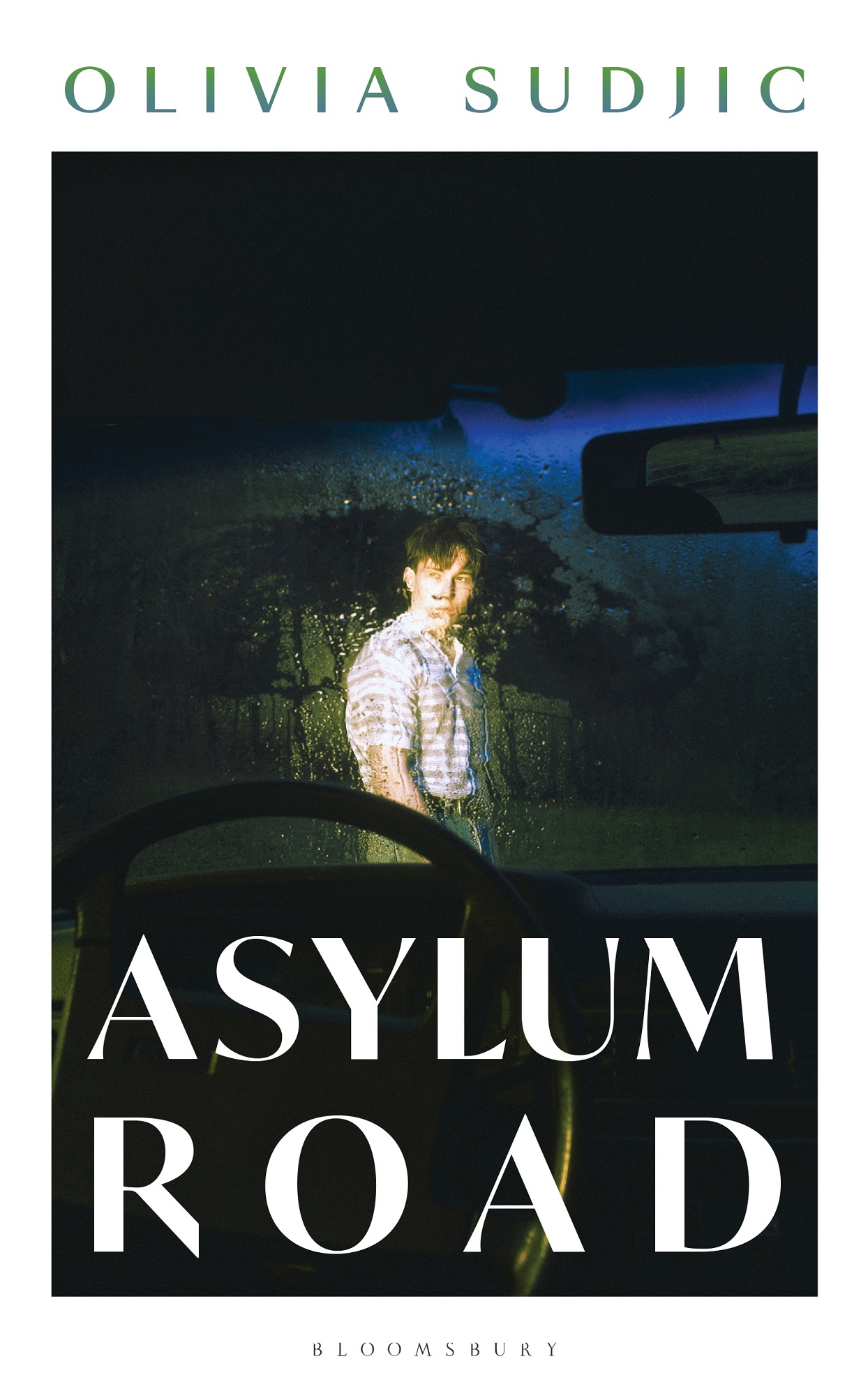Olivia Sudjic: Asylum Road review - trauma, barely suppressed | reviews, news & interviews
Olivia Sudjic: Asylum Road review - trauma, barely suppressed
Olivia Sudjic: Asylum Road review - trauma, barely suppressed
A timely and absorbing reminder of the proximity of violence

In Asylum Road, Olivia Sudjic's third book, everything is purposeful, each loaded gun introduced just waiting to go off. It has something of the lightness of Rachel Cusk, but is loaded with the weight of Balkan history which cannot be suppressed.
Asylum Road begins melodramatically, with the banal act of listening to true crime podcasts dripping with potential violence. Anya (the protagonist and narrator for all but a small section of the book) and her boyfriend, Luke, become engaged, but don’t seem to like each other. It feels, at points, as though something horrific is going to happen between them. However, as the novel progresses, the reader becomes very aware that Anya’s voice might not be reliable. The violence is a relic of childhood trauma; she was raised in a besieged and divided Sarajevan family, then sent away to Scotland at a young age. Later on, we are introduced to Anya’s mother, who has the clinical inability to remove herself from that conflict. Anya is in the same position, albeit unwittingly, the violence seeping into her view of the world. She can never divorce herself from the early rupture rippling through her present.
 Anya seems almost to be a palimpsest, denying her own past and at times, her own existence. She seems curiously blank, trying to mould herself into what Luke, her classically millennial, safely middle class boyfriend, and his parents want her to be, but never quite managing to blend in. She is introduced alongside Luke as they drive down through France. Her artificial adaptation becomes even clearer when she visits her Balkan family; her name changes to the Slavic Anja. When she travels to Sarajevo, the pieces of the puzzle seem to move closer together, but there is always something missing, something irreconcilable about her. Even in her homeland, she is not quite right.
Anya seems almost to be a palimpsest, denying her own past and at times, her own existence. She seems curiously blank, trying to mould herself into what Luke, her classically millennial, safely middle class boyfriend, and his parents want her to be, but never quite managing to blend in. She is introduced alongside Luke as they drive down through France. Her artificial adaptation becomes even clearer when she visits her Balkan family; her name changes to the Slavic Anja. When she travels to Sarajevo, the pieces of the puzzle seem to move closer together, but there is always something missing, something irreconcilable about her. Even in her homeland, she is not quite right.
When Anya is called back to the Balkans, her carefully constructed, white-walled life begins to crumble. She loses her phone and her thesis notebook on the plane, essentially losing her mooring to her life in the UK. However, as much as she is cast adrift, it is clear that there is some part of her (subsumed in the UK) that fits into the chaos of life in the Balkans. By contrast, Luke is an awkward and unwilling adjunct to her visit; when faced with the full reality of his fiancé’s past, he cannot cope. Their visit becomes the catalyst for fundamental change in Anya’s life, but this is not the sort of book that offers a neat, cosy, happy ending. Asylum Road is a good challenge to the literary trope of reconciliation and repair through acknowledgement of a past trauma. It offers no easy solutions and carries well the essential truth that violence can sometimes never leave a person’s life.
Asylum Road hints at bigger things, to geographical and ideological divides. It shows the reader that although the battlefield has changed and is at times internalised, it is always there. It is an excellent, suspenseful look at how seeming perfection can hide trauma and, ultimately, dissolution.
- Asylum Road by Olivia Sudjic (Bloomsbury Publishing, £14.99)
- More book reviews on theartsdesk
The future of Arts Journalism
You can stop theartsdesk.com closing!
We urgently need financing to survive. Our fundraising drive has thus far raised £49,000 but we need to reach £100,000 or we will be forced to close. Please contribute here: https://gofund.me/c3f6033d
And if you can forward this information to anyone who might assist, we’d be grateful.

Subscribe to theartsdesk.com
Thank you for continuing to read our work on theartsdesk.com. For unlimited access to every article in its entirety, including our archive of more than 15,000 pieces, we're asking for £5 per month or £40 per year. We feel it's a very good deal, and hope you do too.
To take a subscription now simply click here.
And if you're looking for that extra gift for a friend or family member, why not treat them to a theartsdesk.com gift subscription?
more Books
 'We are bowled over!' Thank you for your messages of love and support
Much-appreciated words of commendation from readers and the cultural community
'We are bowled over!' Thank you for your messages of love and support
Much-appreciated words of commendation from readers and the cultural community
 Tom Raworth: Cancer review - truthfulness
A 'lost' book reconfirms Raworth’s legacy as one of the great lyric poets
Tom Raworth: Cancer review - truthfulness
A 'lost' book reconfirms Raworth’s legacy as one of the great lyric poets
 Ian Leslie: John and Paul - A Love Story in Songs review - help!
Ian Leslie loses himself in amateur psychology, and fatally misreads The Beatles
Ian Leslie: John and Paul - A Love Story in Songs review - help!
Ian Leslie loses himself in amateur psychology, and fatally misreads The Beatles
 Samuel Arbesman: The Magic of Code review - the spark ages
A wide-eyed take on our digital world can’t quite dispel the dangers
Samuel Arbesman: The Magic of Code review - the spark ages
A wide-eyed take on our digital world can’t quite dispel the dangers
 Zsuzsanna Gahse: Mountainish review - seeking refuge
Notes on danger and dialogue in the shadow of the Swiss Alps
Zsuzsanna Gahse: Mountainish review - seeking refuge
Notes on danger and dialogue in the shadow of the Swiss Alps
 Patrick McGilligan: Woody Allen - A Travesty of a Mockery of a Sham review - New York stories
Fair-minded Woody Allen biography covers all bases
Patrick McGilligan: Woody Allen - A Travesty of a Mockery of a Sham review - New York stories
Fair-minded Woody Allen biography covers all bases
 Howard Amos: Russia Starts Here review - East meets West, via the Pskov region
A journalist looks beyond borders in this searching account of the Russian mind
Howard Amos: Russia Starts Here review - East meets West, via the Pskov region
A journalist looks beyond borders in this searching account of the Russian mind
 Henry Gee: The Decline and Fall of the Human Empire - Why Our Species is on the Edge of Extinction review - survival instincts
A science writer looks to the stars for a way to dodge our impending doom
Henry Gee: The Decline and Fall of the Human Empire - Why Our Species is on the Edge of Extinction review - survival instincts
A science writer looks to the stars for a way to dodge our impending doom
 Jonathan Buckley: One Boat review - a shore thing
Buckley’s 13th novel is a powerful reflection on intimacy and grief
Jonathan Buckley: One Boat review - a shore thing
Buckley’s 13th novel is a powerful reflection on intimacy and grief
 Help to give theartsdesk a future!
Support our GoFundMe appeal
Help to give theartsdesk a future!
Support our GoFundMe appeal
 Jessica Duchen: Myra Hess - National Treasure review - well-told life of a pioneering musician
Biography of the groundbreaking British pianist who was a hero of the Blitz
Jessica Duchen: Myra Hess - National Treasure review - well-told life of a pioneering musician
Biography of the groundbreaking British pianist who was a hero of the Blitz
 Shon Faye: Love in Exile review - the greatest feeling
Love comes under the microscope in this heartfelt analysis of the personal and political
Shon Faye: Love in Exile review - the greatest feeling
Love comes under the microscope in this heartfelt analysis of the personal and political

Add comment